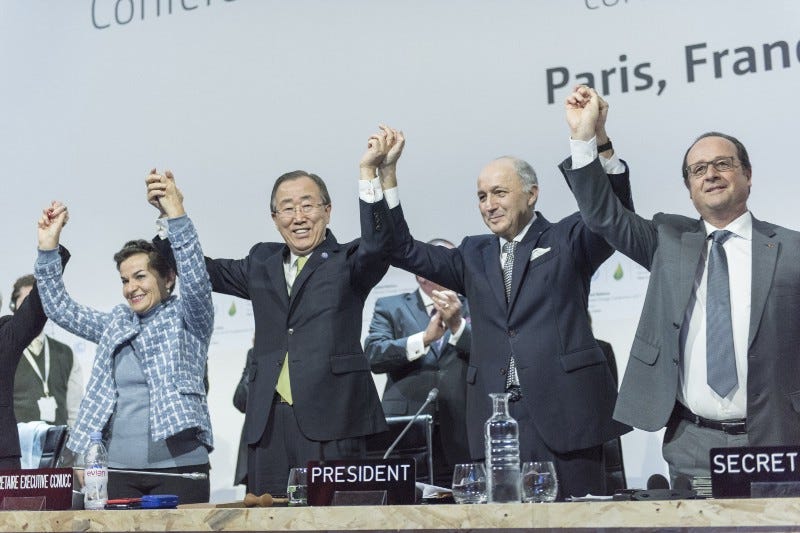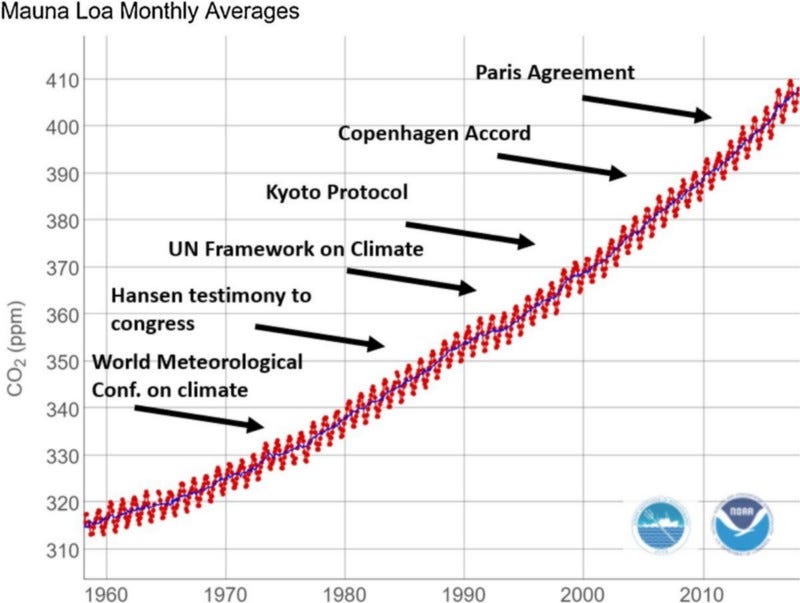A little less (climate) conversation, a little more action
No matter what world leaders say, words can’t stop wildfires, hurricanes, droughts, or floods.
We’ve seen a lot of alarming reports and impassioned speeches lately, reminding us of the difficulties — and urgency — of tackling climate change.
While we hope this evidence and urgent rhetoric will give world leaders the kick they need to take meaningful climate action, our track record raises the question: Do any of these desperate calls to action, agreements, or pledges make a real difference?

To commemorate the fifth anniversary of the Paris Agreement last week, countries, most of which are falling behind on targets, gathered virtually at the Climate Ambition Summit. United Nations Secretary General António Guterres kicked off the event by calling out our collective failure.
“Five years after Paris, we are still not going in the right direction,” Guterres said in his opening address. “Today we are 1.2 degrees hotter than before the industrial revolution. Can anybody still deny that we are facing a dramatic emergency?”
It wasn’t all bad news: Fifteen countries shifted their national emissions reductions from “incremental” to “major,” and the European Union confirmed its pledge to cut 55% of emissions by 2030. But overall, with ample opportunity to announce new policies aimed at reducing fossil fuel emissions, the majority of leaders made only small tweaks to their original pledges.
There’s also little reason to believe the few things they did say or change. 2020 is on track to be one of the three hottest years on record, after decades of spewing emissions at record rates. And the pandemic-induced reduction in global CO2 emissions is unlikely to stick (not to mention it came at the expense of 1.65 million lives and counting).
Emissions would need to continue falling 6% each year until 2030 to avoid the worst climate impacts and meet the 1.5 degree Celsius target. Countries, instead, are doubling down on fossil fuels.
“Current [nationally determined contributions] remain seriously inadequate to achieve the climate goals of the Paris Agreement,” a recent U.N. Environment Programme report said. “The levels of ambition in the Paris Agreement must be roughly tripled for the 2C pathway and increased at least fivefold for the 1.5C pathway.”

We’ve continued business as usual after every climate conversation, which means, thus far, world leaders haven’t feared climate change enough to follow through on commitments. And no matter what they say, words can’t stop wildfires, hurricanes, droughts, or floods—we need concrete policy changes.
The pandemic offers an unprecedented opportunity to flip the script. The E.U. used COVID-19 stimulus plans to designate 550 billion euros ($669 billion) to green projects over the next seven years. China announced its goal for net-zero emissions by 2060. And green recoveries will create thousands of jobs that could pull countries out of economic turmoil.
Scientists are hopeful that new policies can bring us within reach of our goals, and who knows, the pledges made this year could be different.
But, of course, not everyone is on board. Notably, the United States — the world’s second-largest emitter — remains a large elephant in the room: moving backward on climate change as the only country to leave the Paris Agreement.
U.S. President-elect Joe Biden has promised a lot (including to rejoin the agreement). The E.U. has promised a lot. China has promised a lot. But given these countries’ histories of empty words, I’ll believe it when I see it.



